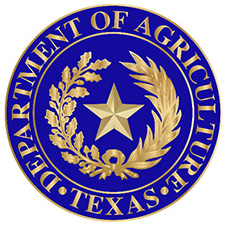Although weaknesses persist, farmers borrow less money
Farmers and ranchers are taking out fewer loans from agricultural banks, and asking for smaller amounts of money when they need cash to pay for equipment, livestock or day-to-day expenses, said the Federal Reserve in its quarterly Agricultural Finance Databook. “Weaknesses in the sector persisted, continuing to pressure farm cash flows and agricultural credit conditions,” reports the Fed.
Japan ag output to decline under trade pact with U.S.
Japanese beef producers will be hit the hardest by their nation’s agreement to reduce tariffs on U.S. food and agriculture products, according to an estimate by the government in Tokyo. The package calls for Japan to reduce or eliminate tariffs on $7.4 billion worth of U.S. ag exports beginning on Jan. 1.
TODAY’S QUICK HITS
USDA launches ReConnect project (USDA): Agriculture Secretary Sonny Perdue announced the first award, $2.8 million to an electric cooperative in Tennessee, from $600 million worth of USDA loans and grants to build broadband infrastructure in rural America.
Illinois sets June 20 cutoff for dicamba (DTN/Progressive Farmer): In a step that could force the EPA to decide the power of states to set stricter rules than federal regulators, the Illinois state Agriculture Department set a June 20 cut-off date for use of the herbicide dicamba.
Heavy tariff bite on EU cheese, butter (USDA): Some 42 percent of cheese and 83 percent of butter imported from Europe will face additional U.S. tariffs of 25 percent in retaliation for EU aircraft subsidies, estimated the Economic Research Service.
Grounding air ambulances? (Daily Yonder): Operators of air ambulances say they would be forced to cut back, or even eliminate service in rural areas under legislation intended to prevent large and unexpected bills for patients transported by the services.
Warm fall and early winter (NOAA): Warmer-than-usual temperatures are forecast for most of the 48 contiguous states, except the upper Midwest, for November, December and January, with above-normal precipitation in the western Corn Belt, Plains and the northern Rocky Mountain states, said the Climate Prediction Center.
ON THE CALENDAR
Monday
– Canada holds federal elections, with neither the ruling Liberal Party nor its closest challenger, the Conservative Party, expected to win a majority in Parliament although polls give an edge to the Liberals. Whatever the outcome, Canada is likely to ratify the United States-Mexico-Canada Agreement, the successor to NAFTA, after the United States approves it, says a U.S.-based analyst.
– USDA releases weekly Crop Progress report, 4 p.m. ET.
Tuesday
– House Agriculture subcommittee hearing, “Examining the conservation benefits of precision agriculture,” 2 p.m. ET, 1300 Longworth.
– USDA releases monthly Cold Storage report, 3 p.m. ET.
Wednesday
– National Organic Standards Board holds fall meeting, through Friday, Pittsburgh. Agenda includes changes to list of allowed and prohibited substances.
Thursday
– Vice President Pence delivers inaugural Malek lecture sponsored by Wilson Center, a nonpartisan policy forum, Washington. “This will be the vice president’s second major speech on the Trump administration’s policy on China,” said the White House.
– International Grains Council releases monthly Grain Market Report, London.
Friday
– USDA releases monthly Food Price Index, 9 a.m. ET. The USDA forecast lower-than-normal food inflation this year and in 2020 in its September report.
– USDA releases monthly Cattle on Feed report, 3 p.m. ET.
– Agritourism World Summit, through Sunday, Franklin, Tennessee.
Sunday
– Rural Women’s Summit, through Oct. 29, Greenville, South Carolina.











